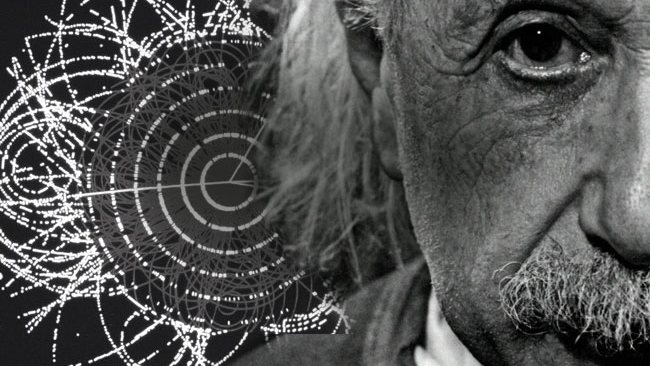
SCIENTISTS may have to sharpen their pencils and re-do a lot of math: It seems the speed of light may not be constant after all.
In a finding that can potentially affect everything from the age of the universe to calculating the orbit of satellites, two new studies suggest the speed of a photon in a vacuum may fluctuate by as much as 50 quintillionths of a second per square meter.
So, the speed of light - 299,792,458 meters per second - may need some rethinking.
That this speed is constant has been something of an assumption for the past century.
The problem appears to be that the vacuum of space is not actually empty. Pairs of ultra-tiny particles may regularly be popping in and out of existence, and getting in the way.
Both reports have been published in the journal European Physical Journal D.
It has already been theorised that the vacuum of space is filled - at the ultra-small quantum level - with pairs of particles which appear and disappear very quickly.
Now, Marcel Urban from the University of Paris-Sud say the speed of light and other constants are consequently "not fundamental constants but observable parameters of the quantum vacuum".
Einstein's theory of relativity - which hinges on the speed of light being absolute - may benefit from some modification.
At an even more complicated level, a paper by physicist Gerd Leuchs and Luis Sanches-Soto from the Max Planck Institute in Germany suggest the speed of light depends on the electric charge of the particles found in a vacuum - not their mass.
This could potentially answer the question: Why is the speed of light what it is.
http://www.news.com.au/technology/sci-tech/studies-discover-speed-of-light-may-not-be-constant/story-fn5fsgyc-1226608322044
http://www.csmonitor.com/Science/2013/0325/Scientists-examine-nothing-find-something
http://phys.org/news/2013-03-ephemeral-vacuum-particles-speed-of-light-fluctuations.html


อัตราเร็วของแสงในสุญญากาศอาจมีค่าไม่คงที่
SCIENTISTS may have to sharpen their pencils and re-do a lot of math: It seems the speed of light may not be constant after all.
In a finding that can potentially affect everything from the age of the universe to calculating the orbit of satellites, two new studies suggest the speed of a photon in a vacuum may fluctuate by as much as 50 quintillionths of a second per square meter.
So, the speed of light - 299,792,458 meters per second - may need some rethinking.
That this speed is constant has been something of an assumption for the past century.
The problem appears to be that the vacuum of space is not actually empty. Pairs of ultra-tiny particles may regularly be popping in and out of existence, and getting in the way.
Both reports have been published in the journal European Physical Journal D.
It has already been theorised that the vacuum of space is filled - at the ultra-small quantum level - with pairs of particles which appear and disappear very quickly.
Now, Marcel Urban from the University of Paris-Sud say the speed of light and other constants are consequently "not fundamental constants but observable parameters of the quantum vacuum".
Einstein's theory of relativity - which hinges on the speed of light being absolute - may benefit from some modification.
At an even more complicated level, a paper by physicist Gerd Leuchs and Luis Sanches-Soto from the Max Planck Institute in Germany suggest the speed of light depends on the electric charge of the particles found in a vacuum - not their mass.
This could potentially answer the question: Why is the speed of light what it is.
http://www.news.com.au/technology/sci-tech/studies-discover-speed-of-light-may-not-be-constant/story-fn5fsgyc-1226608322044
http://www.csmonitor.com/Science/2013/0325/Scientists-examine-nothing-find-something
http://phys.org/news/2013-03-ephemeral-vacuum-particles-speed-of-light-fluctuations.html